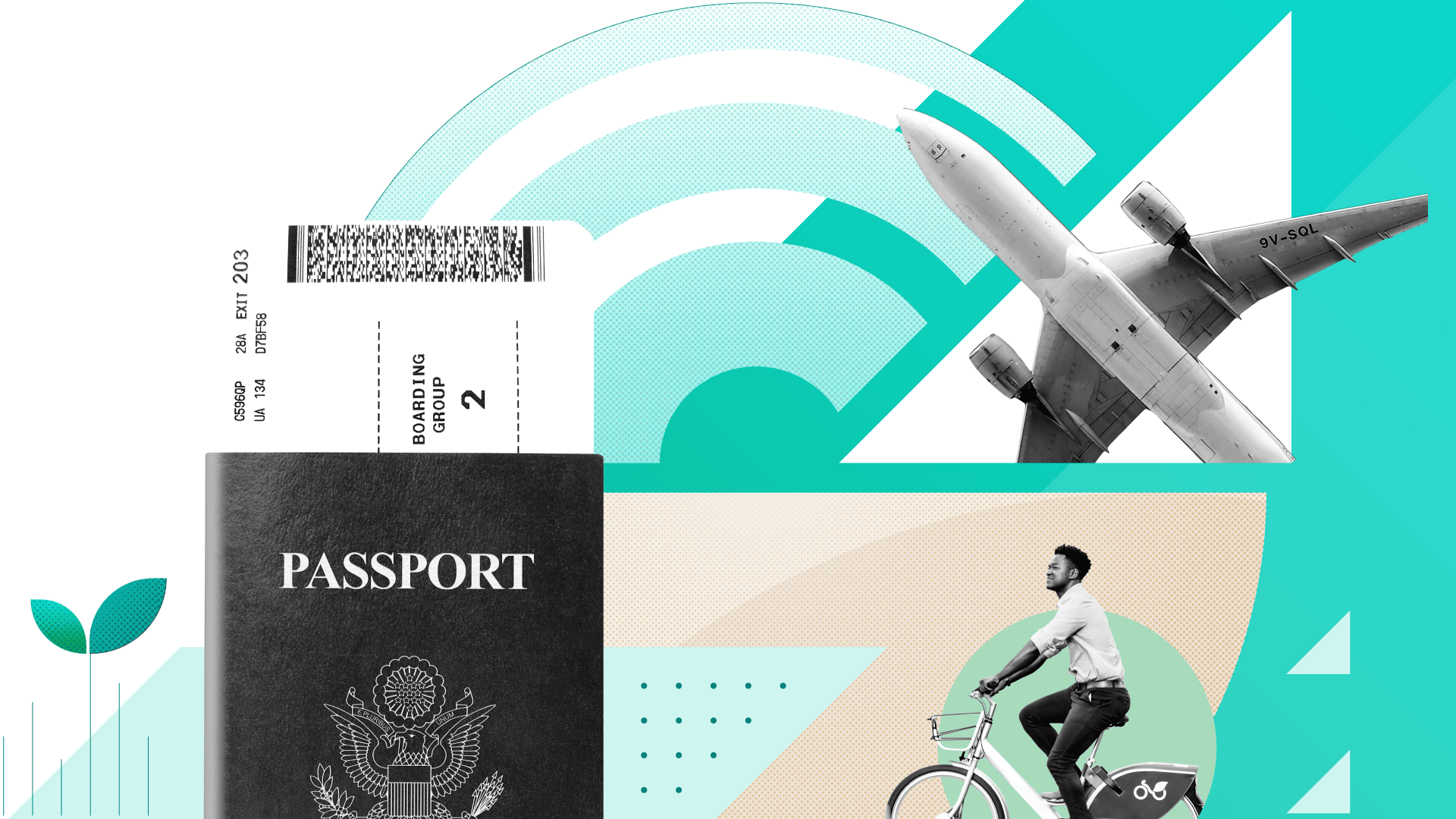Energy
Consumers Aren’t Enticed by Eco-Friendly Transportation for Now — Unless Cash Is Involved

Key Takeaways
Around one-third of adults are split 50/50 about whether they would purchase lower-emission flights or ride-hailing for a small fee if it was offered as an option.
Consumers want to be paid for being eco-friendly: 59% of consumers would purchase a lower emission flight if they were to receive cash back for doing so.
If companies are relying on carbon offsets to meet their climate goals, they must offer a cash-back incentive to ensure the success of their campaigns or continue to rely on other methods like sustainable aviation fuels to meet those targets.
Sign up to get the latest global energy data and analysis delivered to your inbox every morning.
As people return from summer vacations and start looking to fall and holiday travel, some may notice the increasingly popular offer to choose a more eco-friendly way to travel, including the option of purchasing a carbon offset. While the concept of carbon offsets is not new — nor is it one that environmentalists agree is the most effective way to lower emissions — some companies are still giving consumers the option to offset their carbon in different ways, including donations to specific projects or airline miles for every dollar spent on offsets.
But consumers are not sold on the idea: Almost half (47%) said that their concern about climate change, if they have any, has no impact on their travel purchase decisions, according to a new Morning Consult survey. Furthermore, despite the eco-friendly offerings, there’s low awareness of them. Almost 4 in 5 (78%) U.S. adults have not heard of airlines offering carbon offset programs for additional fees. Even those who frequently travel (72%) said they also haven’t heard of any carbon offset options, which presents another challenge for companies trying to push the programs.
That said, they may be more amenable to eco-friendly travel if companies cough up the cash. About 3 in 5 consumers (59%) would be up for purchasing a lower emission flight if they received cash back for doing so.
3 in 5 Adults Would Prefer Cash Back for Choosing Eco-Friendly Travel
Carbon footprints not on consumers’ minds when booking
Consumers do not typically think about their carbon footprints when they book travel. When choosing a company to book with, roughly 1 in 5 (22%) consumers said their carbon footprint of their booking was a major factor. For respondents who said they are concerned with the climate, that figure rose to 29%, suggesting that consumers —– even those with climate change on their minds — aren’t too worried about their carbon footprints when making travel plans.
Even if companies did offer more eco-friendly options that could help lower the carbon footprint of consumers, only a small fraction of the population would consider purchasing. A plurality of consumers said they are on the fence about booking lower emission flights for a small fee (31%). However, 28% of Gen Z adults and 29% of millennials said they would likely book the eco-friendly flight, presenting an opportunity for companies to better tailor eco-friendly options to younger generations.
About 1 in 5 Consumers Would Consider Eco-Friendly Flight, Ride-Hailing Options
Whether consumers feel any personal responsibility for their own emissions does not seem to translate into purchasing eco-friendly options either. When asked who they felt was responsible for lowering greenhouse gas emissions, consumers were given a choice between companies, government and individuals. Their choices did not meaningfully impact their purchasing decisions: Only about a quarter of consumers said they would want to purchase a lower emission flight, regardless of who they thought was responsible.
That’s probably because consumers are less likely to believe that individuals are responsible for lowering greenhouse gas emissions. More than half of U.S. adults (53%) think that companies should be responsible for reducing greenhouse emissions, followed by governments (50%) and then individuals (44%).
Specific demographics at scale: Surveying thousands of consumers around the world every day powers our ability to examine and analyze perceptions and habits of more specific demographics at scale, like those featured here.
Why it matters: Leaders need a better understanding of their audiences when making key decisions. Our comprehensive approach to understanding audience profiles complements the “who” of demographics and the “what” of behavioral data with critical insights and analysis on the “why.”
If consumers don’t feel responsible for emissions, they likely won’t add any charges that would offset the environmental impact of their travel, and instead will leave it up to the company to figure out how to reduce emissions or would only be interested if the companies themselves are shelling out dollars to incentivize them into the purchase. They will also have to target consumers who are more likely to be interested in those offerings, specifically younger generations.
That said, consumers on the fence about paying for eco-friendly options could be swayed by the promise of cash back. This is most evident with consumers who said they are not concerned about climate change: 56% said they would consider purchasing eco-friendly travel for cash back. This is the same group that said they would not consider purchasing lower-emission flights (48%) or ridehailing (49%) for a fee. The data suggests that the promise of cash back for making an eco-friendly choice, instead of paying a fee, is enough to get them to make that purchase.
However, companies should be wary about relying too much on these programs to meet their climate goals.
If consumers who care about the environment want to feel good about offsetting their carbon emissions, companies should provide an easy way to achieve it, which would likely boost their reputation for being eco-friendly in the process.
American Airlines, for example, partnered with the nonprofit Cool Effect, which calculates flight emissions and allows consumers to easily purchase offsets. Southwest Airlines provides 10 bonus points for rewards members for every dollar spent on offsets, although the airline does warn consumers that the environmental impacts from a trip may not be eliminated entirely by the add-on.
Most airlines already know carbon offsets won’t help them get near their climate targets and, as a result, have taken measures to lower emissions using more expensive, but sustainable, aviation fuels. This strategy, for now, seems to be the easiest way to lower emissions in the airline industry instead of relying on consumers to make the reductions for them.
Julia Martinez previously worked at Morning Consult as an energy & auto analyst on the Industry Intelligence team.


